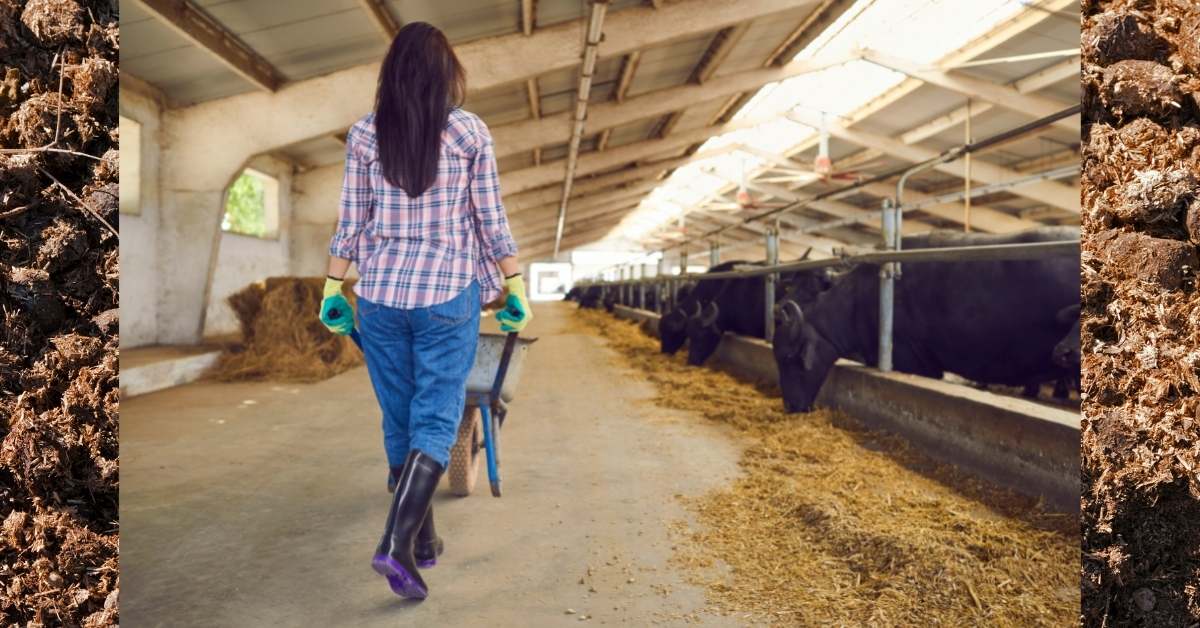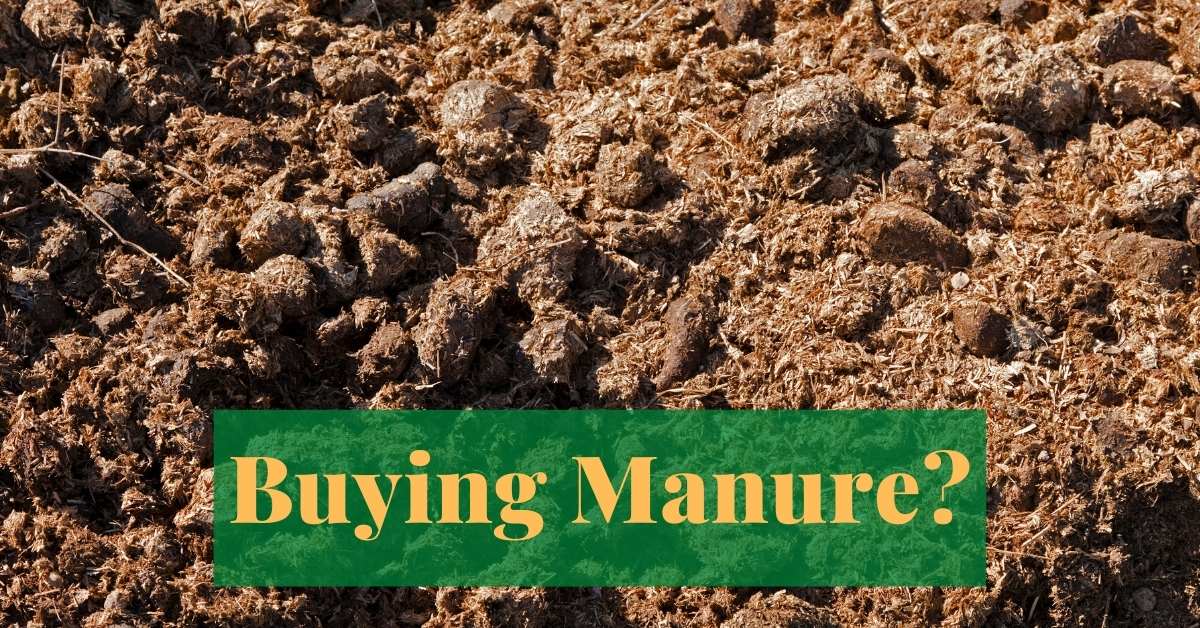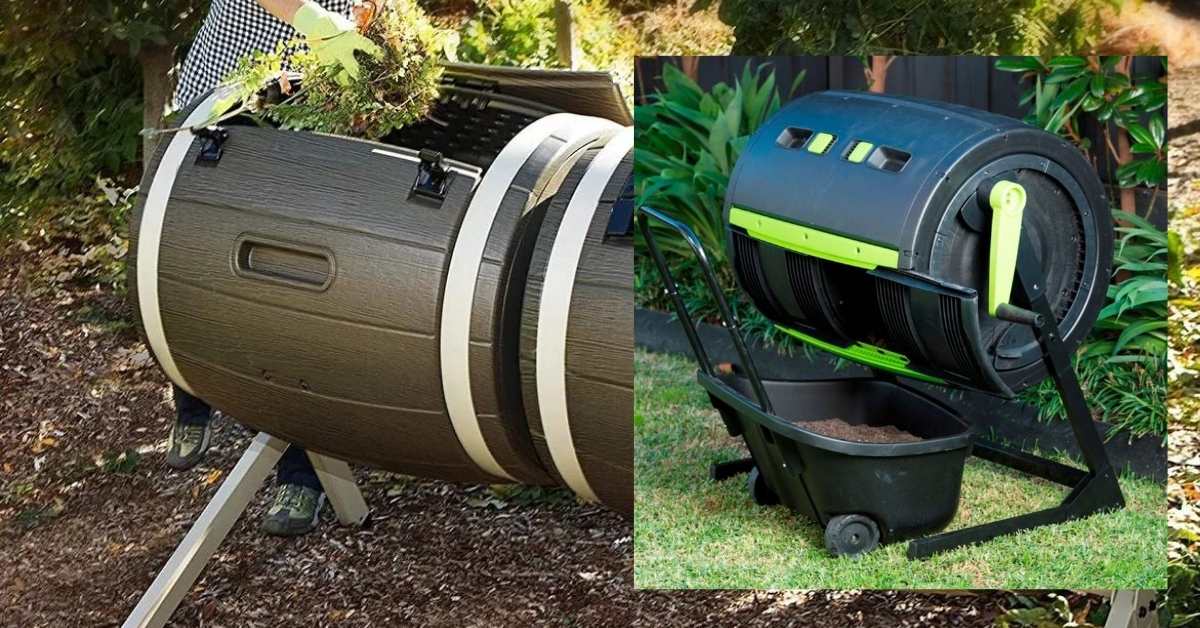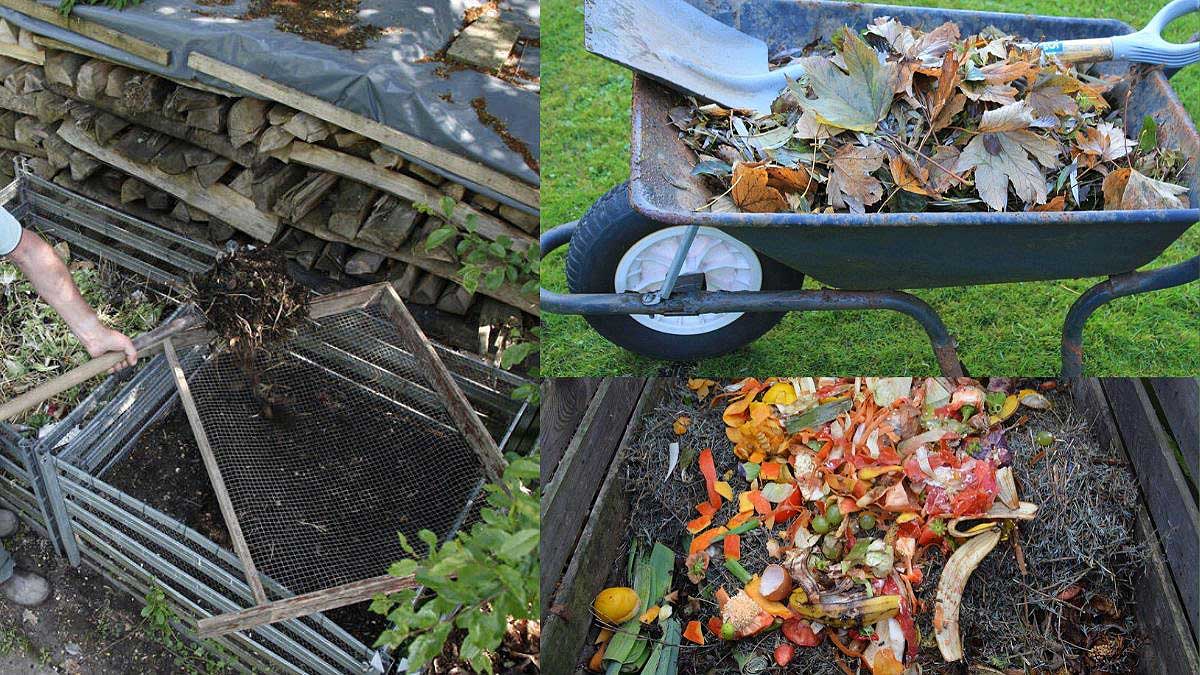Whether preparing a raised bed, container plants, or a lush flower garden, choosing quality organic manure for your soil can mean the difference between success and failure. Regardless of where the garden lives, different soils have different compositions, and it is rare to find a perfectly balanced blend that will give your plants or vegetables all the nutrients they require.
How to Choose the Right Manure for Your Plants
Manure is a valuable source of organic matter and nutrients for your plants, but not all manures are created equal. Different types of manure have different characteristics, such as nitrogen content, pH level, salt concentration, and weed seeds. Choosing the right manure for your plants can make a big difference in their health and growth. Here we explain everything you need to know before buying manure for your plants.
Some factors to consider when choosing manure for your plants:
The type of plants you are growing:
Different plants have different nutrient requirements and preferences. For example, leafy greens and herbs need more nitrogen than root crops and flowers. Fruiting plants and trees need more phosphorus and potassium than leafy plants.
Acid-loving plants, such as blueberries and azaleas, need a low-pH manure, such as pine needles or peat moss. Alkaline-loving plants, such as cabbages and broccoli, need a high-pH manure, such as wood ash or lime.
The age and condition of the manure:
Fresh manure is high in nitrogen and moisture, but it can also be high in salt, ammonia, and pathogens. Applying fresh manure directly to your plants can burn their roots and leaves or contaminate them with harmful bacteria or parasites.
Aged or composted manure is lower in nitrogen and moisture, but it is also lower in salt, ammonia, and pathogens. It is safer and more beneficial to apply aged or composted manure to your plants, as it improves the soil structure and fertility without harming your plants.
The source and quality of the manure:
Different animals produce different kinds of manure with varying nutrient levels and compositions. For example, chicken manure is high in nitrogen, but it can also be high in salt and weed seeds.
Cow manure is low in nitrogen, but it can also be low in pathogens and weed seeds. Horse manure is moderate in nitrogen, but it can also be moderate in pathogens and weed seeds.
The quality of the manure also depends on the diet and health of the animals, as well as the bedding material used. For example, manure from animals fed with organic feed or grass is better than manure from animals fed with synthetic feed or grains. Manure mixed with straw or sawdust is better than manure mixed with plastic or metal.
To choose the right manure for your plants, you need to do some research and testing. You can find information about the nutrient levels and pH levels of different types of manure online or in gardening books.
You can also test your soil and your manure with a simple kit or meter that you can buy from a garden center or online. By knowing your soil condition and your plant needs, you can select the best manure for your plants.
Buying The Best Manure Doesn’t Have To Be Expensive

Fortunately, what is one creature’s waste is a gardener’s treasure – organic manure is one of the finest additives to include in any planting or gardening situation. One of the great things about manure is the many different kinds that can be used, making it easier to use what is locally available to you.
Organic manure is also an important consideration when growing fruits and vegetables because you want to eliminate any potential cross-contamination of chemicals or pesticides that can sometimes be found in common sources of manure.
Buying Manure Locally
Buying manure is often dictated by what is locally available. Most gardeners can find steer manure at any gardening department, but it is rarely organic and can have unwanted salts and weed seeds.
Finding out where manure is generated nearby is often a simple and quick (and occasionally free) method to acquire it. This can be as simple as seeking out local farmers or people who raise rabbits or chickens in their backyard. People are often seeking to get rid of surplus waste, and cows are an animal that often produces high quantities of droppings.
When driving by neighbors who have cows, asking whether they have a use for their excess waste is often a great way to score free manure – but you might have to scoop it up yourself!
Whether you have a free source or have found a place to buy it, manure from small-scale producers is the best way to ensure higher quality manure, especially if you are looking for organic manure.
Types of Manure
Just as there are many kinds of creatures, there are different kinds of excrement to consider when buying manure. Though it may be tempting to use manure or droppings from household pets, keep in mind carnivore animals do not generally produce desirable manure, and some animals, such as cats, can actually transmit diseases such as toxoplasmosis.
Fortunately, you don’t have to be limited to these undesirable options when buying manure. There are many different kinds of animals that produce a variety of nutrients plants love and need.
Rabbit droppings – sometimes referred to as “black gold,” rabbit manure is desirable for a variety of reasons, one being its ability to be applied directly to the soil or around plants. They are essentially beads of nitrogen and phosphorous and have the added benefit of acting as slow-release capsules when added to the soil.
Chicken droppings — one of the most nutrient-dense manures, with a high nitrogen content
Chicken droppings are considered “hot,” meaning they must be composted before being added to the soil.
Steer droppings – a common stand-by, steer manure is not the ideal choice for buying manure. It often contains unwanted salts and weed seeds but is readily available in most places.
Cow droppings – cow pies make great cow manure. Low in nutrients, it is also safe to use in high quantities. It can be used for topdressing or soil improvement.
Horse & Sheep droppings – both are “hot” manures and need to be composted before using directly around plants. Both are more potent when derived from animals fed hay and grain rather than just pastured.
Manure in the Garden
After the introduction of synthetic fertilizers, manure lost its popular appeal for some time. Today, manure is experiencing a revival, especially among gardeners who are looking for a natural way to improve soil conditions and amend nutrient levels.
Don’t let good waste go to waste. Start up a compost pile and begin cooking up the best batch of manure for your plants.
How to Apply Manure Safely and Effectively
Applying manure to your plants can be a rewarding and satisfying experience, but it can also be a risky and messy one. You want to make sure that you are doing it right so that you can enjoy the benefits of manure without harming your plants or yourself. Here are some tips on how to apply manure safely and effectively:
Use aged or composted manure:
As I mentioned before, fresh manure can be too strong and dangerous for your plants and your health. It can burn your plants, contaminate your food, or attract pests and diseases. Aged or composted manure is safer and more beneficial, as it has lower salt, ammonia, and pathogen levels and higher organic matter and nutrient levels.
You can buy aged or composted manure from a garden center or online, or you can make your own by mixing manure with other organic materials, such as leaves, grass clippings, kitchen scraps, etc., and letting it decompose for several months in a pile or bin.
Apply manure at the right time:
The best time to apply manure to your plants is before planting or during the dormant season. This way, you can give the manure enough time to break down and release its nutrients into the soil without interfering with the growth or harvest of your plants.
You can also apply manure during the growing season, but you need to be careful not to touch the stems or leaves of your plants with the manure, as this can cause damage or disease. You also need to avoid applying manure too close to the harvest time, as this can affect the taste or quality of your food. A good rule of thumb is to apply manure for at least four weeks before harvesting edible crops.
Apply manure in the right amount:
The amount of manure you need to apply depends on the type of plants you are growing, the type of manure you are using, and the condition of your soil. Generally speaking, you want to apply enough manure to cover the soil surface with a thin layer of about 2-4 inches thick.
You don’t want to apply too much manure, as this can cause nutrient overload, salt accumulation, or waterlogging in your soil.
You also don’t want to apply too little manure, as this can cause nutrient deficiency, soil erosion, or weed invasion in your soil. You can use a shovel or a rake to spread the manure evenly over your soil surface, or you can use a wheelbarrow or a bucket to transport the manure from one place to another.
You can apply manure safely and effectively to your plants when you follow these tips. You will be amazed by how much manure can improve your soil and your plant’s health and growth.
Just remember to wear gloves and masks when handling manure, and wash your hands and tools thoroughly after applying them.
How to Make Your Own Compost from Manure
Making your own compost from manure is a great way to recycle your organic waste and turn it into a valuable fertilizer for your plants.
Compost is rich in organic matter and nutrients, and it helps improve soil structure and fertility. It also reduces the amount of waste that goes to the landfill and saves you money on buying commercial fertilizers. Here are some steps on how to make your own compost from manure:
Choose a suitable location:
You need to find a place where you can make and store your compost pile or bin. It should be in a sunny or partially shaded spot, away from water sources and children.
It should also have good drainage and ventilation and enough space for turning and mixing the compost materials.
Collect your compost materials:
You need to gather your manure and other organic materials that you want to compost. You can use any kind of manure, except for dog or cat manure, as they can carry harmful pathogens or parasites.
You can also use other materials, such as leaves, grass clippings, kitchen scraps, coffee grounds, eggshells, etc., but avoid meat, dairy, oil, or bones, as they can attract pests and cause odors.
You need to have a balance of green materials (high in nitrogen) and brown materials (high in carbon) in your compost pile or bin. A good ratio is about 2 parts green to 1 part brown.
Layer your compost materials:
You need to start by putting a layer of coarse materials, such as twigs or straw, at the bottom of your pile or bin. This will help with drainage and aeration.
Then you need to alternate layers of green and brown materials, making each layer about 4-6 inches thick. You can sprinkle some water or soil between each layer to add moisture and microorganisms.
You can also add some lime or wood ash to raise the pH level of your compost or some blood meal or bone meal to increase the nitrogen level of your compost.
Turn and mix your compost materials:
You need to turn and mix your compost materials every few weeks to speed up the decomposition process and prevent odors or pests.
You can use a fork or a shovel to turn the pile or bin, or you can use a tumbler or a rotating bin to make it easier. You want to move the materials from the center to the edges and from the bottom to the top so that they get exposed to air and moisture evenly.
You also want to check the temperature and moisture level of your compost regularly. It should be warm and moist but not hot or wet.
Harvest your compost:
You need to wait for about 3-6 months for your compost to be ready. You will know it is ready when it looks dark brown and crumbly and smells earthy and sweet. You can sift your compost through a screen or a mesh to remove any large pieces or unfinished materials. You can then store your compost in a dry and cool place or use it right away for your plants.
How to Store and Handle Manure Properly
Manure is a wonderful fertilizer for your plants, but it can also be a source of problems if you don’t store and handle it properly. Manure can smell bad, attract flies and rodents, leach nutrients and pollutants into the water, or spread diseases and parasites to your plants or yourself.
You need to take some precautions when storing and handling manure so that you can avoid these issues and enjoy the benefits of manure safely and responsibly. Here are some tips on how to store and handle manure properly:
Store manure in a dry and well-ventilated place
You need to find a place where you can store your manure until you are ready to use it or compost it. It should be in a dry and well-ventilated place, away from water sources and children. It should also have a roof or a cover to protect it from rain or snow and a fence or a barrier to keep out animals or people.
You can use a shed, a barn, a bin, or a pile to store your manure, depending on the amount and type of manure you have. You need to make sure that there is enough space for air circulation and moisture evaporation in your storage place, as this will help reduce odors and pathogens in your manure.
Handle manure with gloves and masks
You need to wear gloves and masks when handling manure, as this will protect you from getting in contact with harmful substances or organisms in your manure. Manure can contain bacteria, viruses, fungi, parasites, or chemicals that can cause infections or allergies in your skin, eyes, nose, mouth, or lungs.
You need to wash your hands and tools thoroughly after handling manure and avoid touching your face or eating with your hands. You also need to keep your manure away from your food or water sources, as this will prevent contamination or poisoning.
Use manure according to the guidelines
You need to use manure according to the guidelines for the type of plants you are growing, the type of manure you are using, and the condition of your soil. You need to apply aged or composted manure instead of fresh manure, as this will reduce the risk of burning or contaminating your plants.
You need to apply manure at the right time, amount, and method, as this will optimize nutrient uptake and soil improvement for your plants. You need to follow the local regulations and recommendations for using manure, as this will ensure the safety and quality of your environment and your products.
Conclusion
In conclusion, manure is a wonderful fertilizer for your plants, but it also requires some care and attention when storing and handling it. You need to store manure in a dry and well-ventilated place, handle manure with gloves and masks, and use manure according to the guidelines.
By doing so, you can avoid the problems of manure, such as odors, pests, pollution, or diseases, and enjoy the benefits of manure, such as organic matter, nutrients, and soil improvement. Manure is a gift from nature that you can use to nourish your plants and your soil, as well as to reduce your waste and your environmental impact.
Don’t let good waste go to waste. Start using manure today and see the difference in your garden. You won’t regret it!
FAQ
What is the best type of manure for my plants?
There is no definitive answer to this question, as different plants have different nutrient requirements and preferences. You need to consider the type of plants you are growing, the type of manure you are using, and the condition of your soil.
Generally speaking, you want to use manure that matches the nutrient needs and pH level of your plants and that has low salt, ammonia, and pathogen levels. You can find information about the nutrient levels and pH levels of different types of manure online or in gardening books.
You can also test your soil and your manure with a simple kit or meter that you can buy from a garden center or online.
How can I make my own compost from manure?
Making your own compost from manure is a great way to recycle your organic waste and turn it into a valuable fertilizer for your plants. You need to gather your manure and other organic materials, such as leaves, grass clippings, kitchen scraps, etc., and layer them in a pile or bin.
You need to have a balance of green materials (high in nitrogen) and brown materials (high in carbon) in your compost pile or bin. A good ratio is about 2 parts green to 1 part brown. You also need to add some water or soil between each layer to add moisture and microorganisms.
You need to turn and mix your compost materials every few weeks to speed up the decomposition process and prevent odors or pests. You need to wait for about 3-6 months for your compost to be ready. You will know it is ready when it looks dark brown and crumbly and smells earthy and sweet.
What are the health risks of handling manure?
Handling manure can pose some health risks if you don’t take some precautions. Manure can contain bacteria, viruses, fungi, parasites, or chemicals that can cause infections or allergies in your skin, eyes, nose, mouth, or lungs. You can also get sick from eating or drinking contaminated food or water from manure.
To prevent these risks, you need to wear gloves and masks when handling manure and wash your hands and tools thoroughly after handling it. You also need to keep your manure away from your food or water sources and avoid touching your face or eating with your hands.
If you experience any symptoms of illness after handling manure, such as fever, diarrhea, nausea, rash, or cough, you should seek medical attention as soon as possible.


